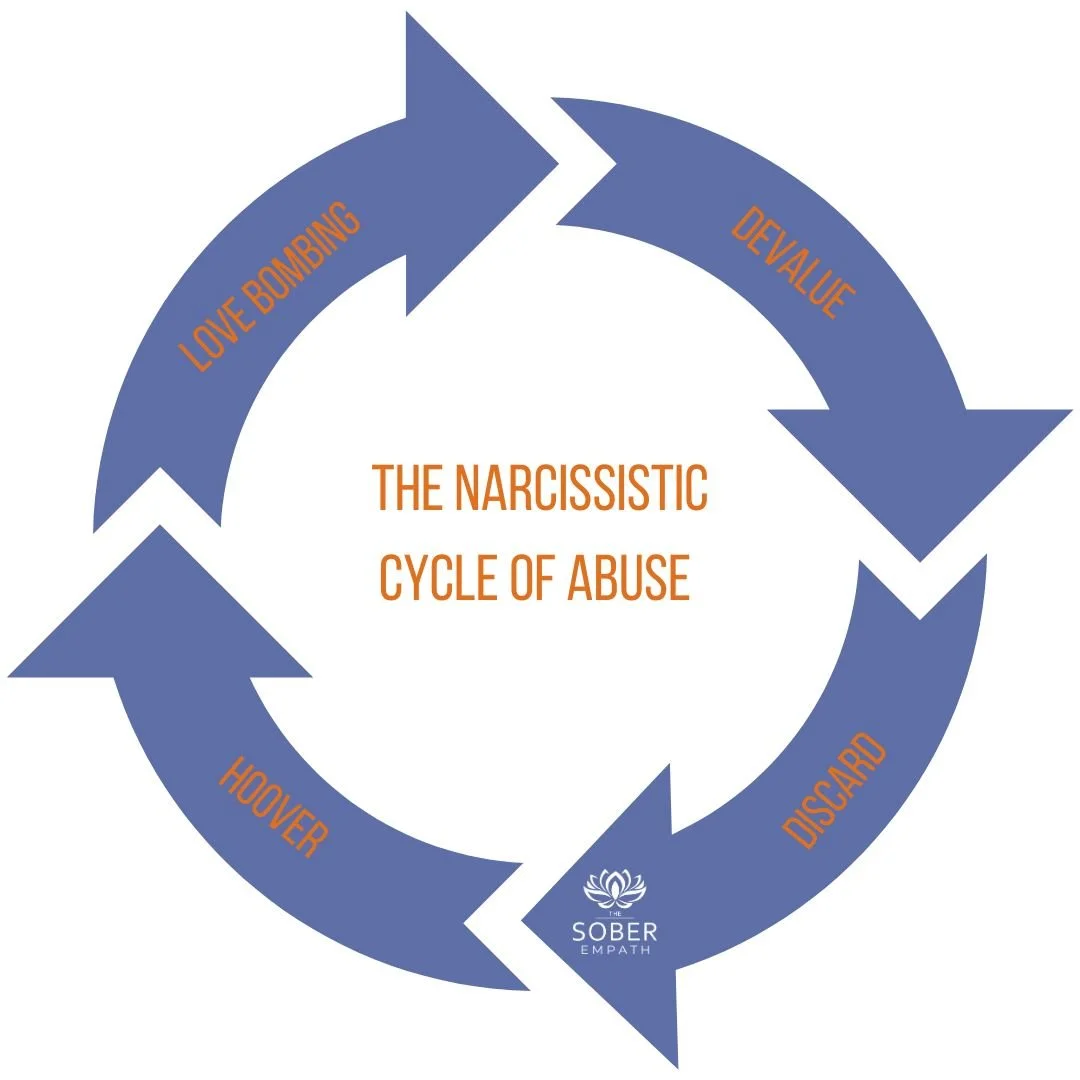Day ONE - How To Lose A Narcissist In 30 Days
Day ONE - How to Lose a NARC
Often, we get trapped in the cycle of researching the narcissist (and the abuse) for years. Our brains like to solve puzzles, and the narcissist is one of the most complicated puzzles we'll ever encounter.
The difficulty arises when we think we can solve problems by understanding "why" people act the way they do if we learn everything there is to know about them. Most of those with narcissistic personality disorder don't want to change. They don't think they are the ones "with" a problem and don't view it as such.
It's crucial to understand their characteristics and recognize the abuse cycle for what it is—a never-ending cycle of idealization, devaluation, discard, and the "hoover" when the narcissist tries to rekindle the friendship (or romance) by using guilt or another form of love bombing to suck you back in.
Can you take a step back to see if this pattern of abuse is happening in any of your relationships? It's not just a romantic partner. As hard as it may be to admit, we may have toxic friends, coworkers, and even our parents (or children).
Do you have a trusted friend or relative you may ask to give you their non-judgemental, unbiased opinion? You might not be able to perceive the abuse cycle if you're involved in it. Those who care about you might notice changes in you. During the love bombing stage, you'll appear to be on top of the world; nevertheless, you can withdraw and exhibit sullenness or hostility during the devaluation and discarding phase.
I encourage you to take this opportunity to educate yourself on the narcissist, your needs, and the dynamics of your relationship. Get curious about your relationships. It's the first step to start living a life you no longer wish to escape from.
*Please note I did not define "narcissist" for you. Like many personality disorders, the toxic person in your life may be on a spectrum. It's dangerous to compare that person with a checklist. Suppose your still, small voice (intuition) tells you you're in a toxic relationship. In that case, it's time to get curious about that relationship and not gaslight yourself by making excuses for how you feel.

